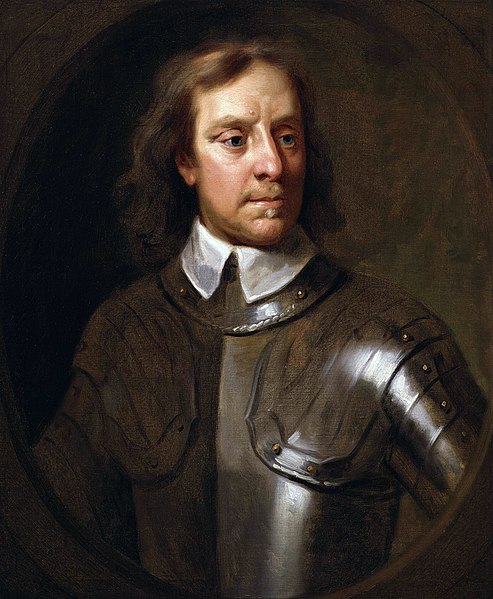The Protectorate, officially the Commonwealth of England, Scotland and Ireland, was the English form of government lasting from 16 December 1653 to 25 May 1659, under which the kingdoms of England, Scotland, and Ireland, with their associated territories were joined together in the Commonwealth of England, governed by a Lord Protector. It began when Barebone's Parliament was dissolved, and the Instrument of Government appointed Oliver Cromwell as Lord Protector of the Commonwealth. Cromwell died in September 1658 and was succeeded by his son Richard Cromwell.
Oliver Cromwell
The Kingdom of Ireland was a monarchy on the island of Ireland that was a client state of England and then of Great Britain. It existed from 1542 to the end of 1800. It was ruled by the monarchs of England and then of Great Britain, and was administered from Dublin Castle by a viceroy appointed by the English king: the Lord Deputy of Ireland. Aside from brief periods, the state was dominated by the Protestant English minority. The Protestant Church of Ireland was the state church. The Parliament of Ireland was composed of Anglo-Irish nobles. From 1661, the administration controlled an Irish army. Although styled a kingdom, for most of its history it was, de facto, an English dependency. This status was enshrined in Poynings' Law and in the Declaratory Act of 1719.

Charlotte Schreiber's The Croppy Boy (1879), relating to the United Irishmen's Wexford Rebellion. A man, possibly a rebel from his green cravat, kneels before a Catholic priest who is covertly in military uniform. The church hierarchy opposed the rebellion.


